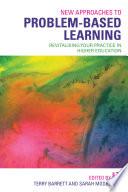
Postcolonialism and Islam
Theory, Literature, Culture, Society and Film
With a focus on the areas of theory, literature, culture, society and film, this collection of essays examines, questions and broadens the applicability of Postcolonialism and Islam from a multifaceted and cross-disciplinary perspective. Topics covered include the relationship between Postcolonialism and Orientalism, theoretical perspectives on Postcolonialism and Islam, the position of Islam within postcolonial literature, Muslim identity in British and European contexts, and the role of Islam in colonial and postcolonial cinema in Egypt and India. At a time at which Islam continues to be at the centre of increasingly heated and frenzied political and academic deliberations, Postcolonialism and Islam offers a framework around which the debate on Muslims in the modern world can be centred. Transgressing geographical, disciplinary and theoretical boundaries, this book is an invaluable resource for students of Islamic Studies, Cultural Studies, Sociolgy and Literature.
- ISBN 13 : 1134647522
- ISBN 10 : 9781134647521
- Judul : Postcolonialism and Islam
- Sub Judul : Theory, Literature, Culture, Society and Film
- Pengarang : Geoffrey Nash, Kathleen Kerr-Koch, Sarah Hackett,
- Kategori : Religion
- Penerbit : Routledge
- Bahasa : en
- Tahun : 2013
- Halaman : 256
- Halaman : 256
- Google Book : https://play.google.com/store/books/details?id=3_82AgAAQBAJ&source=gbs_api
-
Ketersediaan :
Syed's research interest is in Postcolonial Theory and Cultural Studies with a
focus on the creation of culture and the role of cultural products as vehicles for
the transmission of ideas. He has published articles in Polyvocia and the Journal
of War and Culture Studies, as well as a contributing chapter in The Other India (
2012). Kathleen KerrKoch is Senior Lecturer in English specialising in Literary
History and Literary Theory at the University of Sunderland. She has a BA in
English ...









